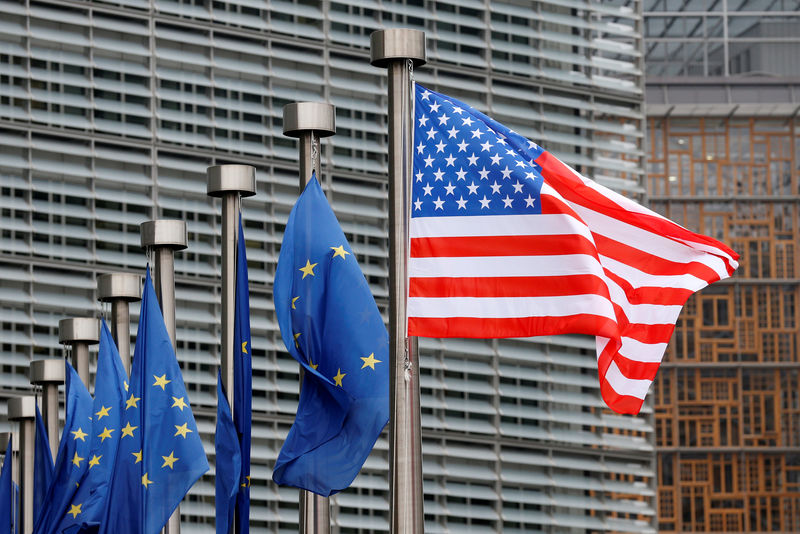(Bloomberg) -- The European Union started to activate measures to preserve the Iran nuclear agreement and to protect EU companies operating in the country, as the bloc reiterated support for the landmark deal after President Donald Trump’s decision to withdraw from it.
The European Commission, the EU’s executive arm in Brussels, on Friday began putting a so-called blocking statute in place to shield European companies doing business with Iran from U.S. sanctions. It’s the first time in more than two decades that the measure is being invoked.
The blocking statute, which would forbid EU companies “from complying with the extraterritorial effects of U.S. sanctions,” is anticipated to be in place by Aug. 6, the commission said. The measure would also allow companies to recover damages arising from the sanctions and would nullify the effect in the EU of any foreign court judgments based on them, it said.
The commission also moved to allow the European Investment Bank to decide under the EU budget guarantee to finance activities in Iran, with a special aim at small and medium-sized businesses. The commission also is encouraging EU governments to explore the possibility of one-off bank transfers to the Central Bank of Iran, which could help the country to receive oil-related revenues, it said.
EU leaders gave the green light to the measures at a meeting in Bulgaria earlier this week. The 28 EU governments and the European Parliament have two months to object to the measures, the commission said.
In the Bulgarian capital of Sofia, the EU agreed to throw its weight behind the Iran nuclear deal that Trump quit and pledged to suspend trade talks with Washington until the bloc is granted an unlimited exemption from his threatened steel and aluminum tariffs. The deepening rift in trans-Atlantic ties was the main takeaway from Sofia, where leaders rallied in defense of the rules-based international system and vowed to confront what EU President Donald Tusk called Trump’s “capricious assertiveness.”
Blocking Mechanism
Trans-Atlantic tensions came to a head with Trump’s decision to pull out of the Iran nuclear accord, which the remaining participants -- Russia, China, France, Germany and the U.K., along with the EU -- all say is working. Trump’s move came despite talks that were under way with European allies over how to improve the nuclear deal.
The last time the EU threatened to use the blocking statute was in 1996. That time, U.S. President Bill Clinton’s administration stood down and agreed to waive sanctions aimed at curbing foreign investment in Cuba, Iran and Libya.
The EU actions are no guarantee that the accord can be salvaged. The U.S. Treasury Department has said companies with existing contracts will have 90 to 180 days to extract themselves from their Iran dealings before becoming subject to penalties.
